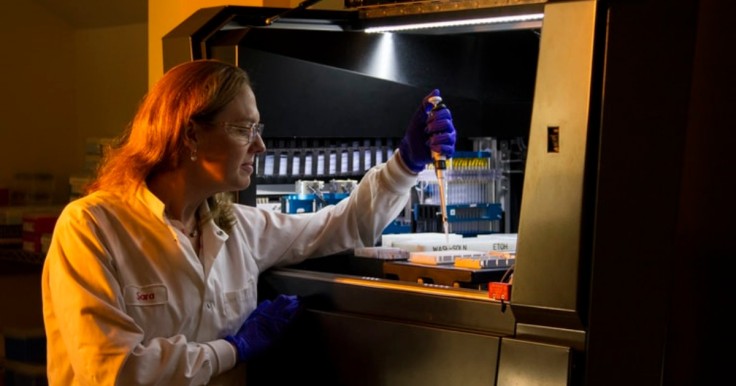
Kathleen Folbigg was dubbed Australia's Worst Female Serial Killer upon her conviction in 2003, allegedly for the manslaughter and murder of all 4 of her children before age 2. She has already served 18 years in prison, and now new scientific evidence came to light that could grant her pardon.
If freed and the convictions against her are overturned, her case would be the worst miscarriage of justice in the history of Australian law.
Did Kathleen Folbigg Smother Her Children to Death?
Even at the time of the conviction, the deaths of the four children of Folbigg were unexplained, noting only SIDS or Sudden Infant Death Syndrome as the only possible cause.
There were no signs of strangulation. Still, she remained a suspect, in part due to her family history. Her father, Thomas John Britton, had murdered her mother when Kathleen was just 18 months old.
Hence, circumstantial evidence and ambiguous entries from Folbigg's diary led Australia's judges to firmly reject the notion of reasonable doubt, concluding that she intentionally caused her to her children and that smothering was the obvious method, BBC reported.
It should be noted that Folbigg's then-husband was the one who handed the diaries to the police; diary entries which Folbigg says have been taken out of context and landed her in the position she was in.
The children's deaths occurred between 1990 and 1999, 90 scientific experts, two of whom are Nobel laureates, signed petitions to pardon Folbigg. The experts found scientific evidence to show that the children were not smothered by Folbigg, Independent UK reported.
Instead, they discovered all four children had rare genetic conditions that could explain their deaths. The evidence can back up Folbigg's stand all along that the children died of natural causes.
In 2015, Forensic pathologist Professor Stephen Cordner re-examined the children's autopsies and concluded, "no positive forensic pathology supporting the contention that any of the children were killed."
He further found "no signs of smothering." In 2018, forensic pathologist Matthew Orde agreed with Professor Cordner stating, "all four of the children's deaths are by natural causes."
Complete Genome Sequencing Shows Folbigg Children Had Rare Genetic Mutations
At the time of Folbigg's trial, geneticists failed to determine a genetic cause for the children's deaths. By 2018, gene sequencing technologies have improved, making it possible to pinpoint the genetic causes of children's deaths.
To do this, first, the geneticists collected Folbigg's genome from swabs of saliva from inside of her cheek. Folbigg was then found to have the rare CALM2 genes, which only 75 other people in the world have.
How is DNA Collected from Children Who Passed Away for a Long Time?
Pathologists have investigated the health concerns of two of the children at hospitals. Hence, frozen tissue samples and immortalized cells or cell lines were preserved in ways that do not destroy the DNA.
For the other two children, the geneticists used the tiny blood samples obtained from a heel-prick upon a child's birth, stored in a card. Parents would know of this blood-sample collection as the newborn screening. Some technologies can amplify the DNA and extract suitable quality DNA from the small amount of dry blood, MamaMia reported.
Not SIDS, But Rare Genes Caused Death of Babies, Under Age 2
The mother and her four children's complete genome sequencing showed that two children-Laura and Sarah-inherited the CALM2 G114R (calmodulin) genetic mutation from their mother. CALM2 can cause sudden cardiac death and premature death in infants and children.
Both girls suffered from infections before they died, which scientists suggest have triggered a fatal arrhythmic event. The eldest boys, Caleb and Patrick, have been found to have a rare genetic variant, BSN, which could cause lethal epileptic fits. The boys' medical history showed epilepsy and floppy larynx.
The NSW government previously assured the public no stone was left unturned with Folbigg's case. But science points to the conclusion of reasonable doubt. The scientific evidence is "compelling and cannot be ignored," human geneticist Professor Jozef Gecz stressed.
Professor Fiona Stanley, a child, and public health researcher, lamented Folbigg's case noting "deep concern that scientific and medical evidence was ignored over circumstantial evidence." Should the scientists' petition to pardon Folbigg be granted, the solicitors handling Folbigg's case can work on having her conviction overturned so she could be given parole.